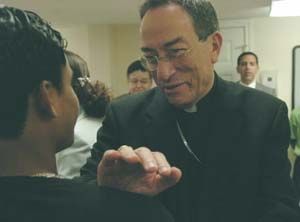But is it correct?
[...]
He argues that these scenes – and the further outpouring of emotion at the funeral that followed them – defined the kind of pope the College of Cardinals was looking for; he had to be “another serious, world-class leader”, and ideally someone associated with the John Paul legacy. And as Dean of the College of Cardinals, with the job of presiding over the funeral and pre-conclave masses, Cardinal Ratzinger was perfectly placed to demonstrate that he met those criteria. He also chaired the daily meetings of the Sacred College during the interregnum, and it’s clear from the testimony of John Allen’s witnesses (he talked to several cardinals off the record for this book, and states that he has reported nothing that was not confirmed by at least two of them) that Ratzinger acquitted himself impressively in the management of the Church during this period.
Allen lists the reasons “Why Ratzinger Won”: they include “the funeral effect”; his intellectual clout; the change in the rules for the conclave which made it possible to elect a pope with a simple majority; and, critically, the absence of a credible challenge from the liberal wing of the Church or the developing world. He reports that some cardinals had reservations about the way the choice of Ratzinger would be received at home, but suggests that those concerns were largely limited to Europe and the United States. He makes a thoroughly convincing case.
[...]
The review of Allen's book from The Tablet: An insider’s guide to the conclave.
In opposition to Mr. Allen's account is that of Sandro Magister (with whose work readers should no doubt be familiar after reading this blog).
This adherence to reality should apply to all other reporting of Church events too, in order to give a faithful account of them. If Joseph Ratzinger’s career path since the middle of 2004 had been followed attentively, if his speeches had been read carefully, if his gestures had been analysed, if the growing consensus about him in the college of cardinals had been registered… then his election as pope would not have come as a surprise, as it did for practically all of the media, but rather as a natural occurrence.
The rest of Magister's comments can be found here at www.chiesa.
So which version is correct? Was it clear to anyone paying attention since last year that Ratzinger's election was the culmination of a growing consensus? Or was it simply Ratzinger's performance from the death of John Paul II up to the sealing of the doors of the Sistine Chapel that convinced the cardinals he was the man of the hour?







